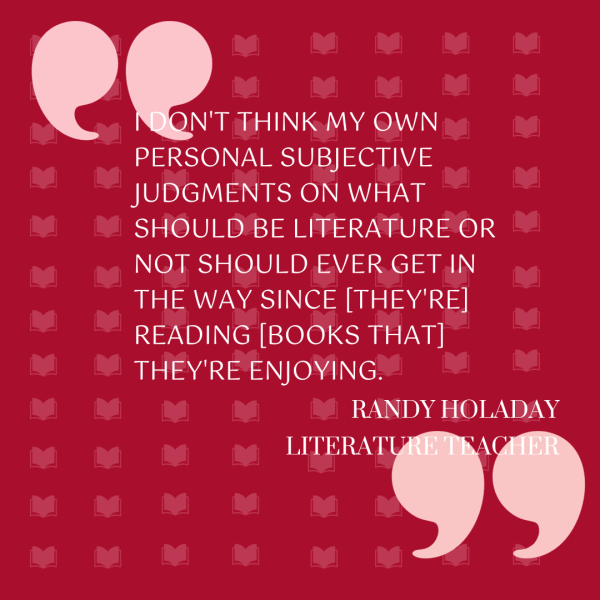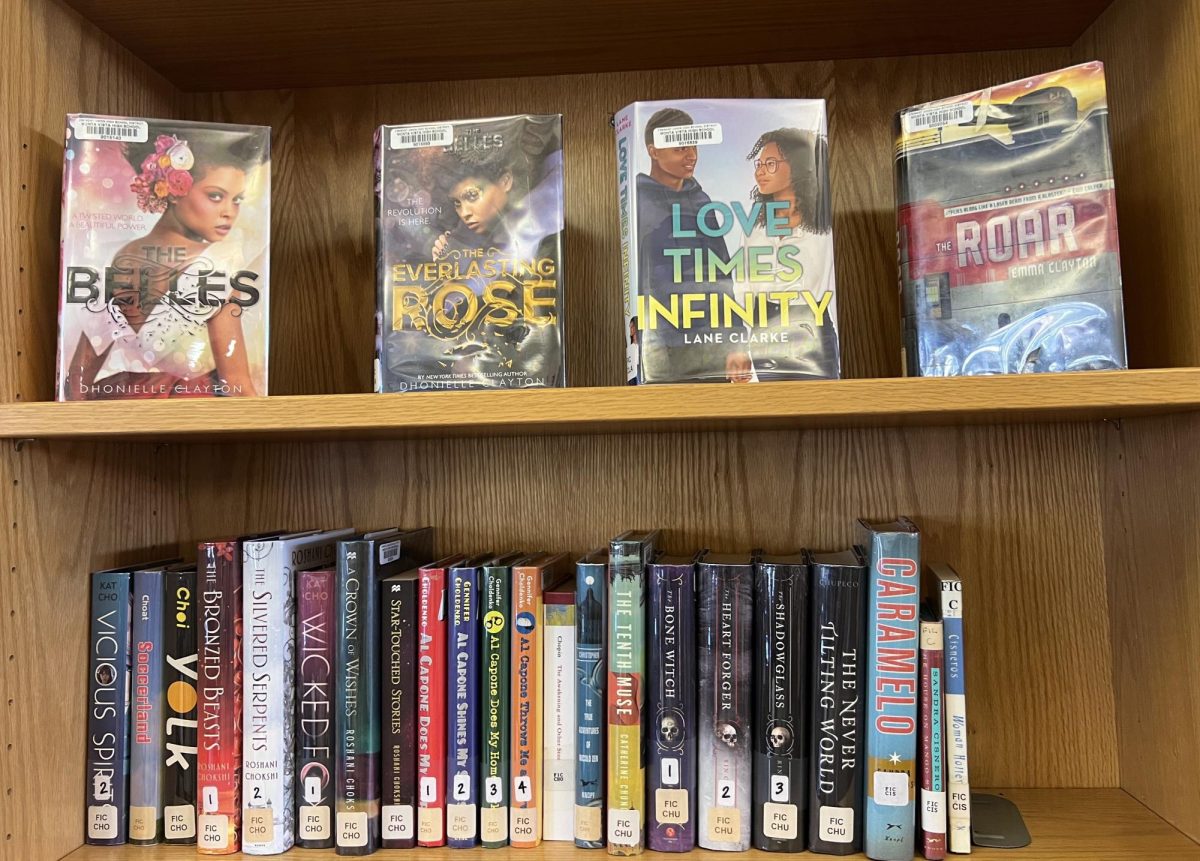Senior Prerana Dilip curls up on the couch, her head buried in a brightly colored book. As she flips the pages, a smile flits across her face as she becomes entranced by a heart-warming interaction between two characters who were once mortal enemies. For a moment, she is transported to this whimsical world of romance.
In recent years, romance has been steadily rising as a genre of literature. According to Publishers Weekly, while overall print book sales are declining, romance book sales are up 34.6% in the first half of 2023. More and more young people find themselves drawn to novels depicting star-crossed relationships than ever before. Dilip is one such individual, reading two to three hours of romance books per day. Due to the large amount of romance books being printed, Dilip doesn’t feel a need to read other genres. She also prefers that most romance books are written in the first person.
“I like romance where someone is struggling but they end up happy, [so] it gives [me] hope,” Dilip said. “I do want to expand my genres, but romance is just so nice to read. It makes me feel hopeful, warm and happy.”
Much of the rise in romance novels can be attributed to female readers, according to Wordsrated, 82% of romance readers are female. Additionally, 83% of romance books are written by women and female romance authors have increased 47% since the 1950’s. Dilip expands on this, stating that romance novels are more relatable to a female demographic because of the shared perspective that female authors have. Because of this, she feels characterization is often more refined and realistic.
“It’s nice to see men written by women, it raises people’s standards and teaches them to not settle for less,” Dilip said. “Men written by men don’t talk highly about women, they just see them as an object. But men written by women love every facet of the person that they’re with.”
However, junior Dorothy Zheng thinks otherwise. Zheng sees the appeal of romance as allowing people to experience fantasies but believes that the genre isn’t realistic and heavily relies on overused tropes.
“I feel like in general, [romance books] portray women as very one-sided people,” Zheng said. “Romance in general is a lot of cliches and it’s kind of overdone. A lot of [stories] romanticize not very healthy relationships. I would hope that those relationships don’t exist in real life.”
Despite not being a big fan of romance, Zheng still views the genre as a form of literature. Literature teacher Randy Holaday agrees, using the example “Aristotle and Dante,” a relationship-dominated book analyzed in freshman literature classes, to show that romance books can be literary enough to be studied. Zheng finds that romance books that go viral tend to rely on cliches and wouldn’t consider them fine literature, but that it’s not necessarily a bad thing for authors to want to write about.
“There’s not anything inherently negative about writing a romance,” Zheng said. “I don’t think that writing about romance makes a book not literature. It’s a very diverse genre, so it’s not very generalizable.”
Although Holaday hasn’t noticed a direct increase in the rate of romance books being published, he has seen more student discussion of the genre. Holaday believes this is due to a reduced taboo and stigma associated with romance books, especially in more liberal areas where views around gender and sexuality are becoming more open. He says the increase in independent publishing allows more traditionally frowned-upon books to become widely read.

“[In] a STEM-focused school, I’m never going to be mad that students are talking about books, and talking about reading and spending their free time reading in a positive way,” Holaday said. “I don’t think my own personal subjective judgments on what should be literature or not should ever get in the way since [they’re] reading [books that] they’re enjoying.”
Dilip recounts that the only books she’s been recommended on the internet have been romance novels. Now with romance books becoming less stigmatized and more popular, large communities discussing romance books have formed online. This has also led to an increase in popularity, providing a perfect platform for discussion and propelling sales. Holaday believes this increased consumption and discussion of romance books will continue into the future.
“When people talk about depressive worldviews, the increasing amounts of information sharing, globalization and recognizing problems on the political [and] environmental sphere, there’s a lot to be doom-scrolling about,” Holaday said. “It’s not that surprising to me that in an increasingly communicative, self-aware world, people are looking for outlets that are disconnected from that entirely. I think that’s why there’s that rise in [people] looking for that escapism. Romance just is completely closed off from a lot of the things that people want to escape from.”













